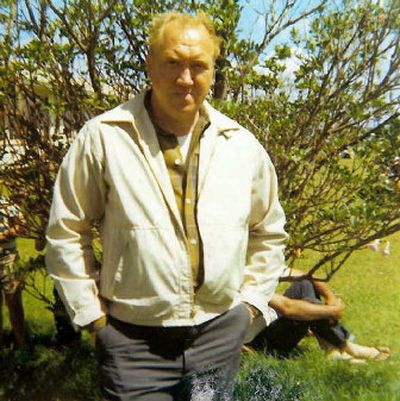Zehm case déja vu

A mentally ill man ends up dead after being suddenly approached by Spokane police officers who wrestle him to the ground, apply handcuffs and leave him on his stomach for several minutes.
Police maintain their actions were entirely legal and justified, even though ultimately it’s determined the man committed no crime.
While those facts appear to match what happened to Otto Zehm in a convenience store in March, they also are what George A. Roberts encountered 14 years ago on a downtown sidewalk.
The 57-year-old Roberts, who suffered from mild schizophrenia, died from positional asphyxia – suffocation caused by being placed in a prone position.
“When I read about what happened to Otto Zehm and watch the video, it’s just like what happened to my dad back in 1992,” Roberts’ daughter, Jane O. Harvell, said Friday.
“This case just brings back so many terrible memories for me,” Harvell said. “It looks like nothing has changed out there in Spokane.
“I’ve seen the (Zehm) video and it was, in my opinion, very brutal. Like in my dad’s death, excuses are made – ‘Officers have to protect themselves.’ “
Harvell said there are other similarities.
Her father was battling mental illness and had walked away from a hospital’s psychiatric ward the night before but had committed no crime as he was approached by police at 1100 W. First Ave. She said police contended her father struck an officer, but there were no witnesses to support that claim. Police say Zehm was holding a two-liter bottle of soda – what they classify as a potentially lethal weapon.
“When somebody calls the police and says they’ve seen this ‘suspicious person,’ does that give the police the right to arrest someone?” Harvell asked.
“I don’t understand why they were arresting Otto Zehm, either,” she continued. “From the video, I couldn’t see if they talked to him or anything. It looks like it was just like with my dad – they just chased him down.”
Harvell said attorneys urged her to ask the prosecutor for a grand jury or a coroner’s inquest. “The response was, ‘We don’t do grand juries or coroner’s inquests in Spokane.’ ”
“It’s like, ‘Excuse me. Why are there no grand juries or coroner inquests?’ I don’t understand.”
She said city officials in Spokane, in her opinion, are reluctant to admit wrongdoing, in part, because the city is self-insured. “I don’t understand why they’re self-insured other than they have too many problems,” Harvell said.
Harvell, who now lives in Wyoming, filed a $5 million suit in U.S. District Court in May 1995 against the five Spokane police officers involved in her father’s death.
Immediately thereafter, Assistant City Attorney Rocky Treppiedi countersued Harvell for allegedly making false claims against Spokane police officers.
A year later, the suits were dismissed by U.S. District Judge Frem Nielson, who concluded that no excessive force was used, and the officers had not violated Roberts’ constitutional rights. Harvell said she was getting “subtle threats” and decided not to appeal the dismissal.
Her attorney, Thomas M. Roberts, who isn’t related to the family, said Friday that the circumstances surrounding George A. Roberts’ death parallel those involving Zehm, 36.
“This isn’t the first time that the Spokane Police Department has been involved in an altercation that resulted in the death of a mentally ill man,” Thomas Roberts said Friday.
The five officers involved in Roberts’ case no longer work for the Spokane Police Department. One of them, Mark Sterk, went on to be Spokane County sheriff before he retired to become a minister.
Another officer, Bill Gentry, later was arrested and convicted for raping a mentally retarded woman. He later applied for a police disability pension.
Harvell said she hoped her suit would prompt changes in the way police handle handcuffed suspects left on their stomachs.
“The Police Department should have learned a lot of lessons,” she said.
“I tried my best to get policies changed, that some type of justice would occur, and there was not.”